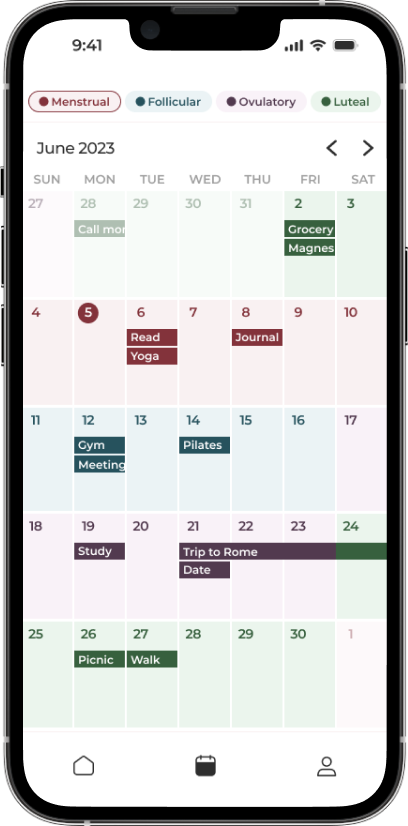Life Coaching for Goal-Setting and Motivation

Goal setting is a fundamental aspect of personal and professional growth. It’s the roadmap that guides us toward our aspirations, motivating us to reach new heights and achieve our dreams. However, setting and achieving goals can be challenging, especially when they seem daunting or unattainable. This is where life coaching comes into play, offering valuable guidance and support in the journey towards realizing your goals. In this article, we will explore the elements of realistic goal setting, how a life coach provides guidance, and the different types of goals that individuals can pursue.
Different Types of Goals
Goals can be categorized into various types, depending on their nature and purpose. Here are some common types of goals:
1. Career Goals
These goals relate to your professional life and may include achieving a specific position, increasing income, or pursuing further education.
2. Personal Development Goals
Personal development goals focus on self-improvement and growth. They can include developing new skills, enhancing self-confidence, or improving communication.
3. Health and Wellness Goals
These goals pertain to physical and mental well-being. They may involve losing weight, quitting smoking, or reducing stress.
4. Financial Goals
Financial goals involve managing and growing your finances. Examples include saving for retirement, paying off debt, or buying a home.
5. Relationship Goals
Relationship goals are centered on improving your interactions and connections with others, such as strengthening your marriage, building better friendships, or resolving conflicts.
6. Travel Goals
Travel goals encompass exploring new places and experiencing different cultures. This could involve visiting specific destinations or embarking on a world tour.

Check out the Vision to Action Planner for only 6$
More info7. Hobby and Leisure Goals
These goals revolve around pursuing interests and passions, such as learning a musical instrument, writing a book, or mastering a sport.
8. Community and Social Impact Goals
These goals focus on making a positive impact on your community or the world, such as volunteering, fundraising for a cause, or starting a nonprofit organization.
What Makes a Goal Realistic?
Realistic goal setting is the foundation of success. A realistic goal is one that is both attainable and relevant to your life. Here are the key elements of a realistic goal:
1. Specific
A realistic goal should be clearly defined and specific. Vague or broad goals are harder to measure and achieve. For example, “Lose 10 pounds by the end of the year” is more specific than “Get in shape.”
2. Achievable
Your goal should be within your reach and aligned with your abilities and resources. Setting an unrealistic goal can lead to frustration and disappointment. For instance, if you’ve never run before, aiming to complete a marathon in a month may not be achievable.
3. Time-Bound
A realistic goal has a deadline. Setting a timeframe creates a sense of urgency and accountability. For instance, “Save $5,000 for a vacation in 12 months” is time-bound.
4. Relevant
The goal should be relevant to your life and aligned with your values and priorities. Pursuing goals that resonate with you increases motivation and commitment.
5. Measurable
You should be able to track your progress and measure your success. This allows for adjustments along the way and ensures you stay on course.
Quiz: What Is Blocking Your Success?
This quick quiz will help you figure out which mental or behavioral pattern might be holding you back from achieving your full potential. Identifying your specific success blocker is the first step toward breaking through to new levels of achievement and fulfillment.
Read each question and choose the answer that feels most true to your situation.
No email or payment is required to complete the quiz and receive your personalized insights.
Once you have your primary success blocker, you have clarity about what’s been holding you back. This awareness is powerful—many people spend years struggling without understanding the specific pattern that’s limiting their progress.
Remember, these patterns aren’t permanent character traits but rather habitual ways of thinking and behaving that can be changed with the right guidance and practice.
If you’re ready to break through your specific blocker and achieve the success you know you’re capable of, send me an email to try out a coaching session. Your breakthrough awaits!
How a Life Coach Provides Guidance
Life coaches are trained professionals who specialize in helping individuals set and achieve their goals. They provide guidance and support in various ways:
1. Clarifying Goals
Coaches work with clients to clarify their goals, ensuring they are specific, achievable, and meaningful.
Clarifying goals with a life coach is an essential step in the process of goal setting and achievement. Often, individuals may have broad or vague aspirations, making it challenging to formulate a clear and actionable plan. A life coach helps individuals delve deep into their desires, values, and priorities to pinpoint precisely what they want to achieve. This clarity is paramount because it ensures that goals are specific, measurable, and aligned with personal values and passions. It reduces ambiguity and provides a focused target, making it easier to set meaningful milestones and chart a course of action. Furthermore, clear goals empower individuals with a sense of purpose and direction, motivating them to stay committed and persevere through challenges. In essence, clarifying goals with a life coach lays the foundation for a well-defined roadmap towards success, enhancing the likelihood of achieving one’s aspirations.
2. Breaking Down Goals
Life coaches assist clients in breaking down larger goals into smaller, manageable steps. This makes the path to achievement less overwhelming.
Breaking down goals with a life coach is a fundamental aspect of effective goal setting and achievement. Large, ambitious goals can often seem overwhelming and daunting when viewed in their entirety. A life coach helps individuals dissect these goals into smaller, more manageable tasks and milestones. By doing so, the path towards achievement becomes clearer, less intimidating, and more achievable. Breaking down goals allows individuals to focus on specific actions and priorities, making it easier to track progress and make necessary adjustments along the way. Moreover, it helps individuals maintain a sense of motivation and direction, as each completed sub-goal provides a sense of accomplishment, reinforcing the belief that the ultimate objective is attainable. Ultimately, working with a life coach to break down goals transforms a vague vision into a structured plan of action, increasing the likelihood of reaching the desired destination.
3. Accountability
Coaches provide accountability by regularly checking in with clients, tracking progress, and holding them responsible for their commitments.
Accountability with a life coach is a cornerstone of effective goal setting and achievement. Having an external source of accountability, such as a life coach, ensures that individuals stay committed to their objectives and follow through with their action plans. The knowledge that someone is tracking their progress and expecting results can be a powerful motivator, discouraging procrastination and fostering discipline. Additionally, a life coach can provide constructive feedback and encouragement, helping individuals stay on track even when faced with obstacles or self-doubt. The sense of responsibility and regular check-ins with a life coach create a structured framework for goal pursuit, significantly increasing the likelihood of success. In essence, accountability with a life coach transforms aspirations into concrete actions and outcomes, making the journey towards achievement more organized and effective.
4. Identifying Obstacles
Coaches help clients identify potential obstacles and develop strategies to overcome them.
Identifying obstacles with a life coach is a vital step in the process of goal setting and achievement. These professionals possess the expertise to help individuals anticipate and recognize potential roadblocks that might impede their progress. By identifying obstacles early on, individuals can proactively plan strategies to overcome them. A life coach can offer valuable insights, alternative perspectives, and practical solutions to navigate around these challenges effectively. Moreover, this process of obstacle identification instills a sense of preparedness and resilience, ensuring that setbacks are viewed as opportunities for growth rather than insurmountable barriers. Ultimately, by working with a life coach to pinpoint and address potential obstacles, individuals can significantly enhance their chances of successfully achieving their goals and realizing their aspirations.
5. Motivation and Inspiration
Life coaches inspire and motivate clients to stay focused and persevere, even when faced with challenges.
Motivation and inspiration provided by a life coach are indispensable elements in the realm of goal setting and achievement. A life coach serves as a source of unwavering support and encouragement, helping individuals maintain their enthusiasm and commitment even in the face of challenges. They can ignite a spark within their clients, reminding them of their aspirations and the underlying reasons behind their goals. Motivation from a life coach is not just about temporary bursts of energy; it’s about cultivating the resilience and determination needed to persevere through obstacles and setbacks. Moreover, a life coach can introduce fresh perspectives, share success stories, and provide guidance from their own experiences, offering a wellspring of inspiration that fuels the journey towards achievement. In essence, the motivation and inspiration a life coach offers act as the driving force that keeps individuals moving forward, even when the path to their goals seems daunting.
6. Creating Action Plans
Coaches assist clients in creating action plans that outline the specific tasks and deadlines required to achieve their goals.
Creating action plans with a life coach is an indispensable component of effective goal setting and achievement. These plans serve as roadmaps that break down ambitious objectives into manageable, actionable steps. With the guidance of a life coach, individuals can chart a clear path towards their goals, identifying key milestones and deadlines along the way. Action plans provide structure and accountability, ensuring that individuals remain focused and committed to their aspirations. Moreover, a life coach can help tailor these plans to an individual’s unique strengths, weaknesses, and circumstances, making them more attainable and realistic. Through continuous monitoring and adjustment, action plans keep individuals on track, provide motivation, and facilitate the process of tracking progress towards their desired outcomes. In essence, creating action plans with a life coach transforms abstract goals into tangible, achievable targets, increasing the likelihood of successful goal realization.
7. Feedback and Reflection
Coaches provide constructive feedback and encourage self-reflection, helping clients learn from their experiences and make necessary adjustments.
Receiving feedback from a life coach and engaging in regular reflection are crucial components of effective goal setting and achievement. A life coach provides an external perspective that can identify blind spots, offer constructive criticism, and guide individuals towards more strategic goal-setting. Their insights can help refine objectives, ensuring they align with personal values and aspirations. Moreover, feedback from a coach fosters accountability, motivating individuals to stay on track and make necessary adjustments. Reflection, on the other hand, encourages self-awareness and a deeper understanding of one’s progress and setbacks. By regularly evaluating their actions and outcomes, individuals can learn from mistakes, capitalize on successes, and adapt their strategies as needed. This combination of external guidance and self-reflection creates a dynamic feedback loop that enhances goal setting and achievement, ultimately increasing the likelihood of reaching one’s desired outcomes.
8. Overcoming Limiting Beliefs
Coaches help clients identify and challenge limiting beliefs that may hinder their progress. They work on fostering a growth mindset.
Overcoming limiting beliefs is essential for goal setting and achievement because these self-imposed mental barriers can be the most significant impediments to realizing one’s full potential. Limiting beliefs are like invisible chains that hold individuals back from pursuing their dreams and aspirations. They often stem from negative past experiences, fear of failure, or a lack of self-confidence. By acknowledging and challenging these beliefs, individuals can free themselves from the constraints that hinder progress. Setting ambitious goals becomes more attainable when one believes in their capacity to succeed. As people break free from their limiting beliefs, they cultivate a growth mindset and become more resilient in the face of setbacks. This transformation paves the way for greater determination, creativity, and adaptability, ultimately propelling them towards their goals with unwavering confidence and determination. In this way, overcoming limiting beliefs serves as the cornerstone for unlocking one’s true potential and achieving remarkable success in life.
Conclusion
Setting and achieving goals is a dynamic and transformative process that can lead to personal growth and fulfillment. Life coaching is a valuable resource for individuals seeking guidance and support on their journey toward realizing their goals. By ensuring that goals are specific, achievable, and relevant, individuals can increase their chances of success. Life coaches play a crucial role in helping clients clarify their objectives, break them down into actionable steps, and stay motivated and accountable throughout the process. Whether your goals are related to your career, personal development, health, or any other area of life, life coaching can be the catalyst that helps you unlock your full potential and turn your dreams into reality. Remember, with the right guidance and commitment, no goal is too ambitious to achieve.
Still waiting for the 'perfect time'?
Email me what you'd do if you stopped making excuses. We'll work backwards from there.
Let's startRecent posts
-
The Complete Guide to Becoming a High Achiever
Read blog -
How To Make a Positive Impact in Your Community
Read blog -
What Is the “Winter Arc” Challenge?
Read blog -
What Is "the Great Lock-In" and Should You Try It?
Read blog -
What Are the 75 Hard and Soft Challenges?
Read blog -
How to Validate Yourself
Read blog

The App Made To Sync Your Lifestyle to Your Menstrual Cycle.
A solution for women who are looking to keep track of what they sync to their cycles, such as fitness, diet, etc. by adding it to a calendar that also predict their phases.
Learn more





Comment